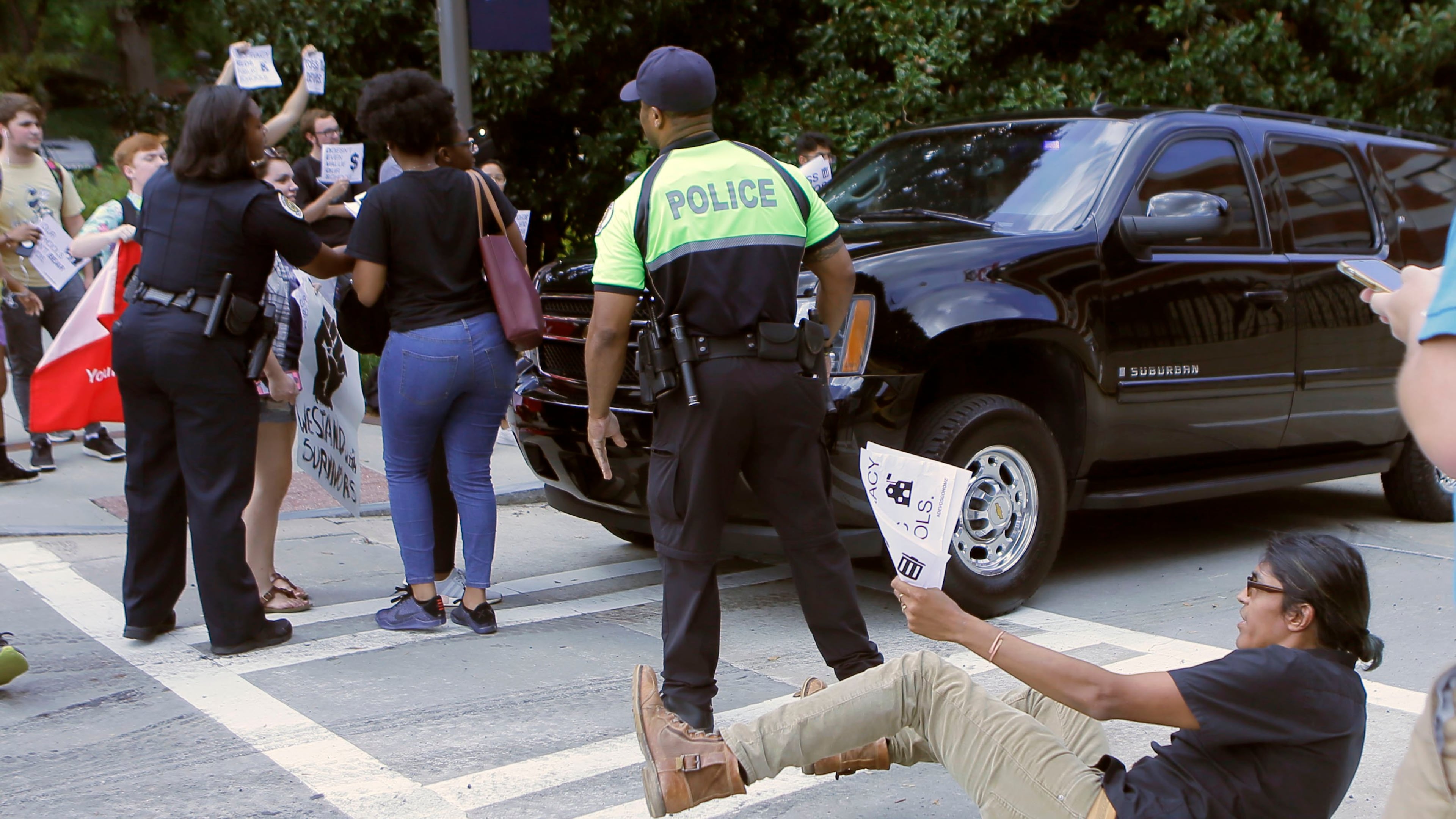Opinion: Stop few angry students on left from hijacking campus debate

Mark Bauerlein is an Emory University professor and author of "The Dumbest Generation: How the Digital Age Stupefies Young Americans and Jeopardizes Our Future."
A widely published commentator on education, Bauerlein today proposes a remedy to the disruption of conservative speakers on university campuses, a practice he says colleges seem unable or unwilling to contain.
In his essay, Bauerlein says a better balance of speakers across the political spectrum will restore civil debate to the college quad and, perhaps, the public square as well.
By Mark Bauerlein
When the group Students Supporting Israel convened a forum on "The Story of Israeli Minorities," a year ago at the University of Georgia, another group, Students for Justice in Palestine, was ready, as it was in 2017 and 2016. Before the proceedings started, several of them infiltrated the audience. As the first speaker tried to deliver his talk, they began their protest.
Rabbi Russ Shulkes, executive director of Hillel of Georgia, testified before the Georgia House last year and described the tactics of the disruption. As invited panelists took their turn, Shulkes said members of Students for Justice in Palestine "interrupted the speaker with anti-Israel rhetoric, made a scene, and eventually left the room. Every time the speaker began to talk, SJP students interrupted the speaker until each member left the room."
There is a video from last year at UGA that shows one disrupter shouting about Israel's apartheid policies before heading outside; it demonstrates nicely the rabid breakdown of debate and decorum created by the Students for Justice in Palestine.
Disruptions like this one should never happen on a college campus. Their impact extends beyond the immediate event. Professors, students, and administrators take a foul lesson from the chaos: certain opinions don’t belong on campus, certain people don’t deserve to be heard, best keep your mouth shut.
This is the opposite of academic freedom. Democratic norms of free speech and open inquiry can’t survive hecklers and intimidators. A few angry students learn that they have the power to hijack campus debates, while the rest keep their heads down, do their work, and avoid controversy. The disruptions come from the left, but everyone save for the zealots is nervous, including liberal professors who sympathize with the larger goals of the protesters and shy away from criticizing their methods.
Recently, a proposal was published that promises to curtail the disruptions and ease the general anxiety. It's the very best remedy I have seen. The author of it, Stanley Kurtz of the Ethics & Public Policy Center calls it the Campus Intellectual Diversity Act.
The act calls for the creation of what he calls a campus Office of Public Policy Events. The office will do two things. One, it will maintain a log of forums, debates, and speeches that a school hosts during the year and that bear upon controversial issues such as abortion and the Middle East. (I needn’t say that the current roster of activities leans way, way to the left.)
Two, the act says, the office will “arrange for debates, panel discussions, and individual lectures from diverse viewpoints on current public-policy disputes.” The office will have nothing to do with classroom instruction or the curriculum. Academic freedom will be respected.
How, though, will this stop the shout downs and improve the intellectual climate?
First of all, a published record of campus speakers and events will demonstrate clearly to legislators, alumni, and parents how narrow the ideological atmosphere of higher education has become. It will be embarrassing for state universities to demonstrate commitments that represent only one slice of the opinions Georgians have on political affairs. The discontent that would follow is the kind of pressure that college leaders can’t ignore.
Second, Kurtz argues, the reason these misfortunes beset the campus is that student-protesters fail to recognize the full range of opinion on delicate issues. If all they have heard from their coursework is that the only just position on abortion is pro-choice, then they will regard a pro-life campus visitor as extreme and immoral. It won’t be an intellectual response. It will be a visceral response—precisely what the campus is supposed to discourage.
Greater exposure to pro-life arguments will change their approach. They won’t necessarily come to agree to pro-life causes, but they will address the pro-life speaker as someone who must be challenged by tough questions and sharp refutations, not someone who to be shunned and assailed.
The purpose of the office is to stimulate debate, to host speakers on multiple sides of complex, sometimes tense issue. A rich and vibrant academic milieu is the core aim. The office must be unquestionably non-partisan—or rather, it shall be partisan only for those viewpoints that are a significant part of the American scene but appear only sporadically in campus events.
I suspect college leaders will welcome this bill. They don’t like censorship, but they don’t want to cross the social justice warriors on campus, either. With the office endorsed by the state Legislature, college presidents won’t have to indulge the angry kids any more. They will be able to say, “The show must go on, and while you may not like this particular guest speaker, there will be more like him coming later this year. I can’t do anything about it. Sorry.”
State politicians should read carefully the Campus Intellectual Diversity Act. The college campus is a testing ground for ideas and attitudes that find their way into public life.
When the climate on the quad goes sour, we should expect the public square to follow suit—as has already happened. If we want a more civil society, the act is a good starting point.

